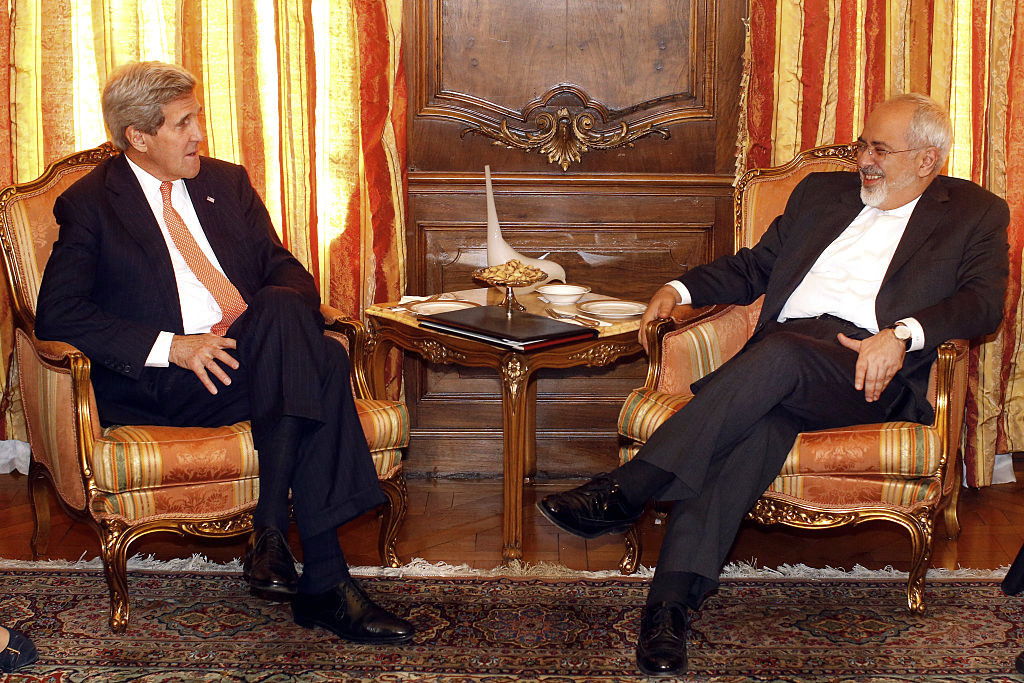
After a three-year break, a serial that started almost 50 years ago is expected to return to world screens with a new season: Uncle Sam wooing the Mullahs of Tehran.
The new season started with a letter sent by US President Donald J. Trump to Supreme Leader Ali Khamenei three weeks ago, reportedly inviting him for a face-to-face rendezvous.
A similar letter was sent by US President Jimmy Carter to Ruhollah Khomeini during his exile in a Paris suburb in 1978, delivered by former US Attorney General Ramsey Clark.
Carter wrote Khomeini another letter a year later, when he had already seized power in Tehran. Delivered by Carter's National Security Advisor Zbigniew Brzezinski, at a meeting with Khomeini's Prime Minister Mehdi Bazargan, the letter repeated the American desire for friendly cooperation with the new regime in Iran.
Carter left the White House without getting a written answer to his letter. Instead, Khomeini authorized a raid on the US Embassy in Tehran and the holding of its diplomats as hostage.
Despite that, Carter's successor, President Ronald Reagan, tried his epistolary talent by writing a five-page letter to Khomeini, accompanied by a huge cake and a beautifully morocco-bound Bible and a Colt-45 semi-automatic pistol. Khomeini replied by ordering the taking of more American hostages, funding the attack on the US Marines barracks in Beirut in 1983 that killed 241 American military personnel.
Despite all that, Reagan's successor, President George HW Bush couldn't resist the letter-writing temptation and penned his own invitation to Tehran's mullahs for talks based on the mantra "goodwill begets goodwill."
President Bill Clinton decided to woo the mullahs that had succeeded Khomeini by "apologizing" to them for unspecified misdeeds by the US and flatter them as "progressives."
In response, Tehran stepped up its "exporting the revolution" campaign by bombing various spots in the Middle East where the US military was located.
President George W Bush removed the two biggest enemies of the Tehran mullahs in Iraq and Afghanistan by toppling Saddam Hussein and Mullah Omar.
Tehran's answer was a sustained campaign of attacks on US troops in Iraq and Afghanistan, combined with the raising and deploying of mercenaries in Lebanon, Syria, Iraq and among Palestinians in the region and beyond.
President Barack Obama tried a different tack: instead of sending billets-doux to the mullahs, he decided to shower them with gifts, including cash smuggled to them via Cyprus and treating Iran as a power not bound by the United Nations Charter.
But that, too, didn't work.
Trump's first presidency stopped the Obama scheme but revived the epistolary tradition set by Carter. Trump persuaded Japanese Prime Minister Shinzo Abe to travel to Tehran to deliver a letter to Khamenei, who refused to receive the letter and sent Abe packing after an insulting harangue. Trump retaliated by issuing a list of 12 desiderata that Tehran had to fulfil or face "maximum pressure."
Khamenei ignored the whole thing and even declared that no talking with Americans was allowed.
The ephemeral Biden presidency pursued the same line as Obama, coddling Tehran while repeating the endless American demand for "negotiations."
Now in his second term, Trump has come back with a letter. This time, Khamenei accepted the letter and even signed a reply to it, only two weeks after stating that talking with Trump was "dishonorable."
This too may lead nowhere, but something big has already happened. For the first time, in his fourth decade as ruler of Iran, Khamenei has accepted responsibility for a major decision rather than exercising power without responsibility.
At the same time, he has sent the ball back to Trump by rejecting direct talks and suggesting indirect ones. If Trump accepts, the supreme leader will claim another victory. If Trump rejects it, the supreme leader will claim that he showed goodwill but was shunned.
Tehran's aim is either to derail the whole thing and blame Trump, or go into slow-motion mode in the hope that the US mid-term elections might puncture the Trump balloon.
In such a scenario, talks about who is to be mediator could take weeks, if not months. The logical option would have been to name either Switzerland, which represents US interests in Iran, or Pakistan, which does the same for Iran in Washington.
Lat week, however, Russian Deputy Foreign Minister Sergei Ryabkov hinted Moscow's interest in playing mediator. Tehran has hinted that it favors Oman, while Washington may think the sultanate is too close to Iran.
If and when a mediator is agreed by both sides, talks would be needed about what level any negotiations should be held at, and the location of the encounter. After that, talks could take place on establishing an agenda.
The next step would be dealing with the so-called "underbrush": issues that are easy to settle.
Right now, it isn't clear precisely what issues Trump wishes to include in any putative agenda for his suggested talks. Tehran, however, is keen on restricting any talks to the nuclear issue in exchange for the lifting of sanctions. Tehran sources say Khamenei may agree to declaring an 18-month moratorium on his nuclear project, provided sanctions are lifted and the snap-back mechanism due to be triggered at the UN Security Council in October is dismantled.
The subtext in all that is Khamenei's belief that since he and Khomeini managed to play seven US presidents like a mandolin, there is no reason why it shouldn't work with an eighth one.
Amir Taheri was the executive editor-in-chief of the daily Kayhan in Iran from 1972 to 1979. He has worked at or written for innumerable publications, published eleven books, and has been a columnist for Asharq Al-Awsat since 1987.
Gatestone Institute would like to thank the author for his kind permission to reprint this article in slightly different form from Asharq Al-Awsat. He graciously serves as Chairman of Gatestone Europe.


